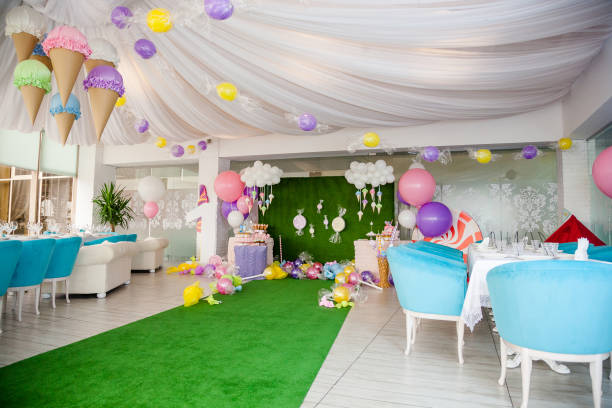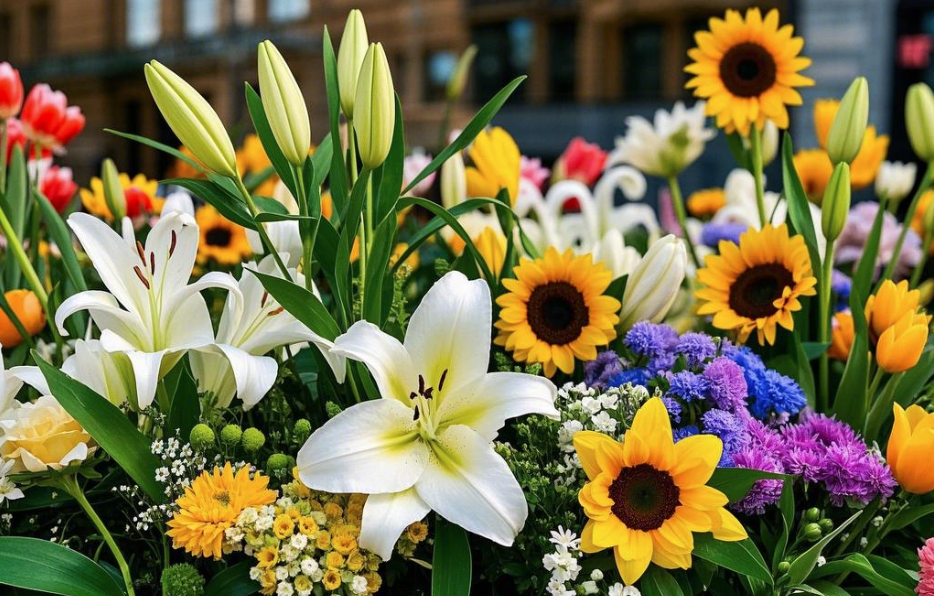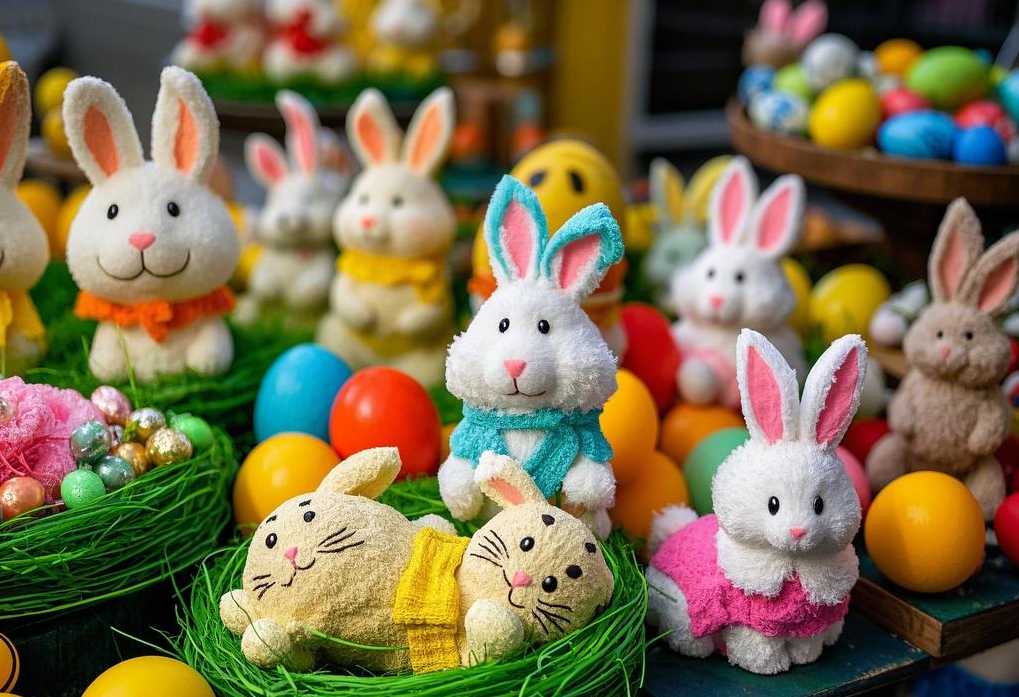The Swazi people, also known as the Siswati, share a deep cultural connection with their traditional practices, including their wedding customs. While “Swazi” refers to the people and their broader cultural identity, “Siswati” is the term used for their language and specific cultural elements. This distinction is important as it highlights the rich cultural tapestry woven into every aspect of Swazi life, including their weddings.
When it comes to weddings, every culture has its unique flair and traditions, and Swazi weddings are no exception. The Swazi people, known for their vibrant culture and deep-rooted traditions, celebrate their unions with ceremonies that are as colorful as they are meaningful. From intricate décorations to ceremonial attire, Swazi traditional décor offers a rich tapestry of cultural significance and artistic expression. This guide delves into the heart of Siswati wedding décor, offering insights into the elements that make these celebrations truly spectacular.
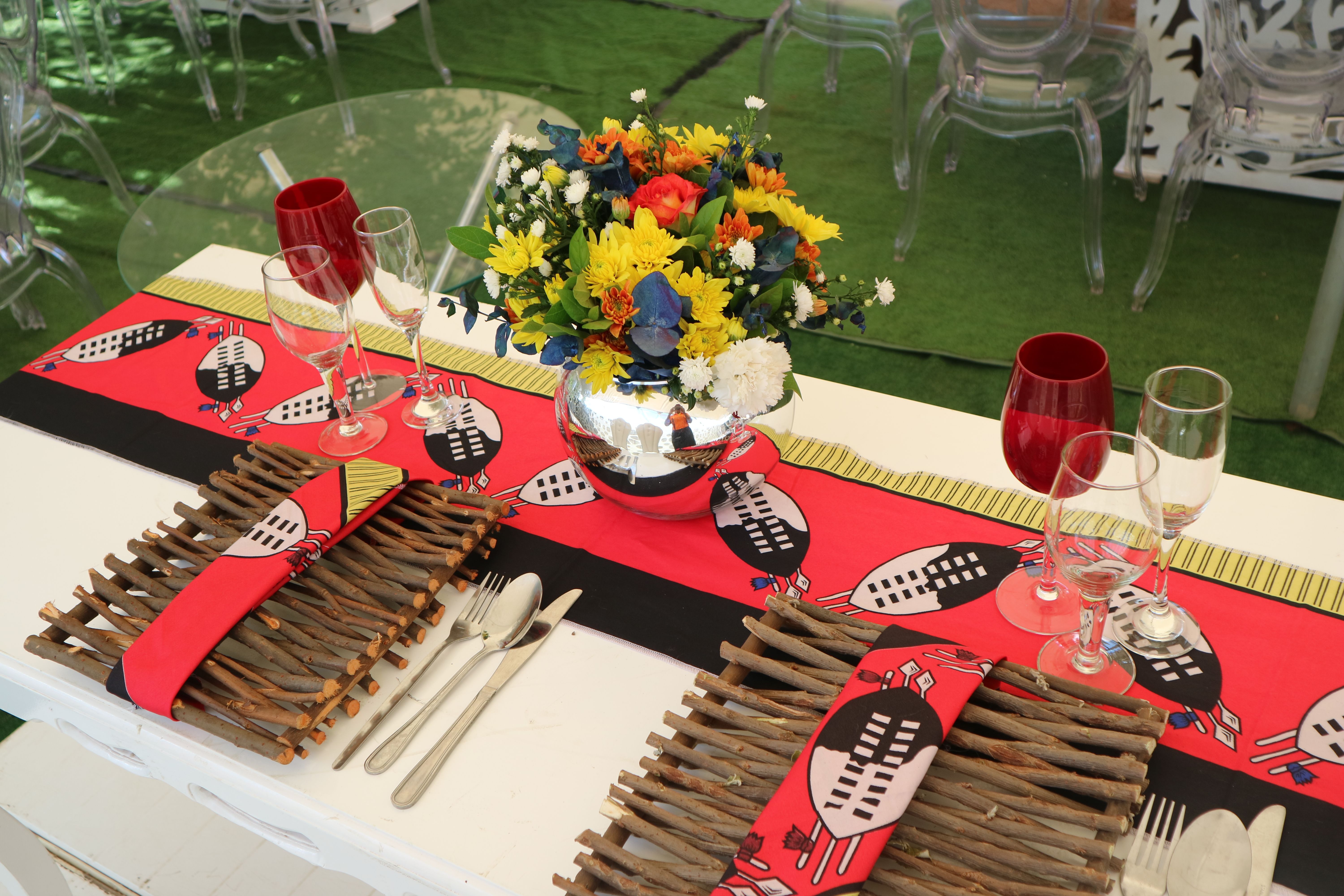
Understanding Swazi Traditional Wedding Décor
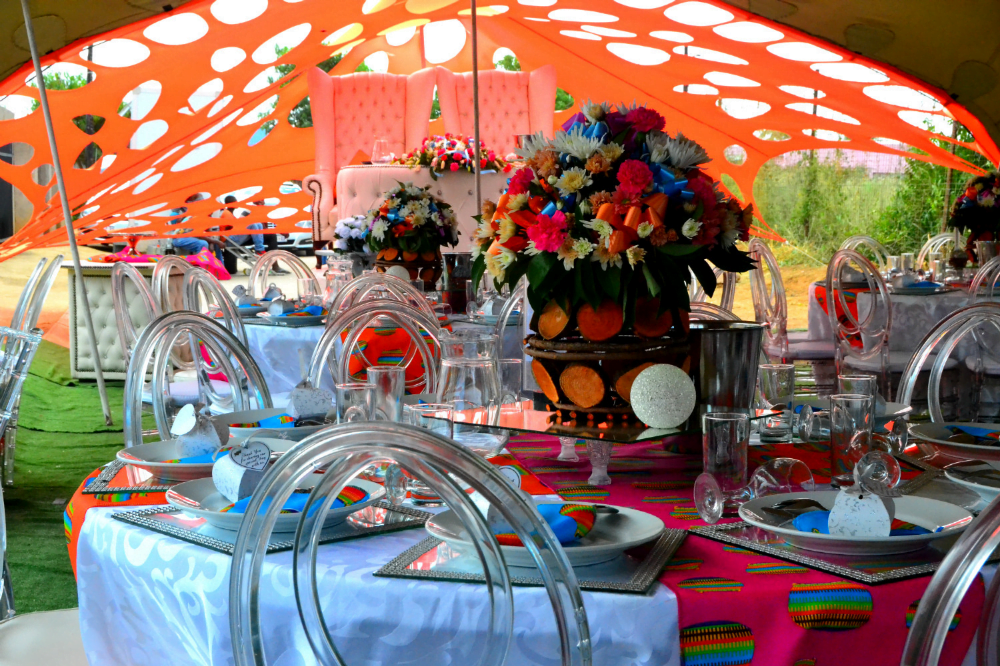
The Siswati traditional décor in weddings is a vibrant canvas that paints a picture of the cultural heritage of South African traditional wedding décor, with each element and every brushstroke carrying its specific cultural significance.
One of the first things you’ll notice is the explosion of colors. Swazi décor isn’t just about aesthetic appeal; it’s a celebration of cultural values. Colors like red, blue, and green aren’t chosen at random.
- Red symbolizes the vitality and strength of the Swazi people, often seen in traditional attire and décorations, reflecting both the warmth of the community and the fervor of celebration.
- Blue, a color deeply tied to the Swazi skies and the fertile lands, represents prosperity and the promise of a fruitful future for the newlyweds.
- Green, evoking the lush landscapes and abundant crops, signifies growth, renewal, and the couple’s new beginning.
Besides, patterns in Swazi décor are equally captivating. Intricate beadwork and weaving techniques are employed to create elaborate designs that often include motifs like the “Lihiya” (cultural motifs) and “Emasotsha” (symbolic patterns). These designs are imbued with layers of meaning, symbolizing the connection between the earthly and the spiritual and reflecting ancestral blessings and the harmonious relationship between nature and human life.
Siswati Traditional Wedding Décor
Stepping into a Siswati traditional wedding is like enjoying a natural and wild party. As you move through the venue, you’re immersed in a rich tapestry of colors, patterns, and craftsmanship that beautifully showcases the traditions and heritage of Swaziland. Here is how they express their ideas, story, and design in every corner.
Venue Setup
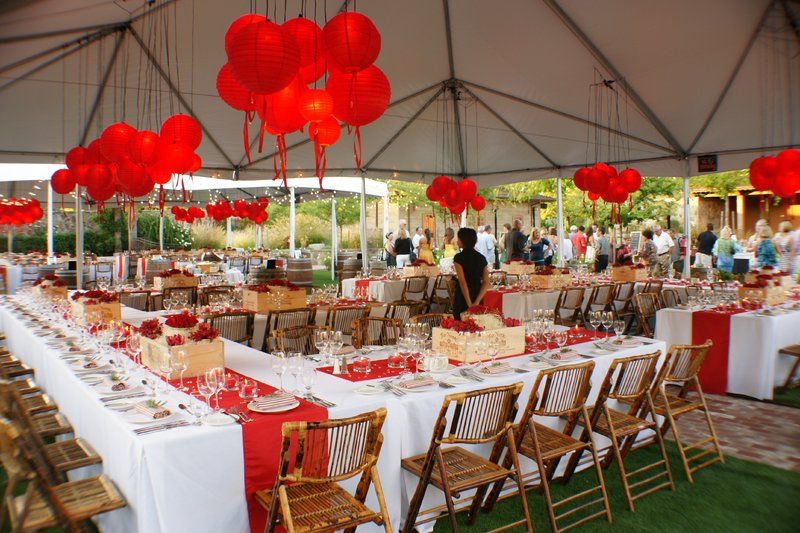
The indoor and outdoor venue setup in Swazi reflects the vibrant traditions and artistry of the Swazi people, setting the stage for a memorable celebration. Let’s explore how these décorations come together to set the stage for this unique occasion.
Indoor Décoration
The Swazi traditional décor for wedding venue where the air is filled with an aura of grandeur and warmth. The venue often features richly adorned fabrics, such as the colorful “Emahiya,” which are draped over walls and tables. These traditional textiles, typically in bright reds, blues, and greens, are embellished with intricate beadwork and embroidery. Also, you might find tablecloths with beaded edges that reflect the light beautifully, adding a touch of elegance and cultural depth.
Centerpieces on the tables often include handcrafted items like woven baskets filled with local flowers and fruits, such as marula or wild orchids. These centerpieces are meant to symbolize prosperity and the abundance of nature. Beaded runners might adorn the tables, showcasing complex patterns that tell stories of Swazi heritage and beliefs.
Lighting plays a crucial role in creating the ambiance. Chandeliers or pendant lights might be adorned with traditional beaded covers, casting a warm, inviting glow over the elaborate décorations. The soft lighting highlights the rich colors and textures of the décor, making the space feel both intimate and celebratory.
Outdoor Décoration
Step outside, and the Swazi wedding décor continues to impress with its integration of natural beauty and traditional elements. Tents or canopies, often décorated with vibrant, patterned fabrics, provide a festive atmosphere. These tents are typically draped with brightly colored cloths featuring traditional geometric patterns.
The use of natural elements is prominent in the outdoor décor. You might see garlands made from fresh local flowers like bougainvillea or hibiscus, which are used to décorate entranceways and canopies. These flowers not only add a splash of color but also carry cultural significance, symbolizing beauty and fertility.
Traditional “Cattle Hides” might be used as part of the seating arrangements or as décorative elements, reflecting the Swazi people’s deep connection to their livestock, which is a symbol of wealth and status. The use of wooden carvings and woven mats further enhances the outdoor setting, blending seamlessly with the surrounding landscape and creating a harmonious, rustic charm.
Unique Pieces
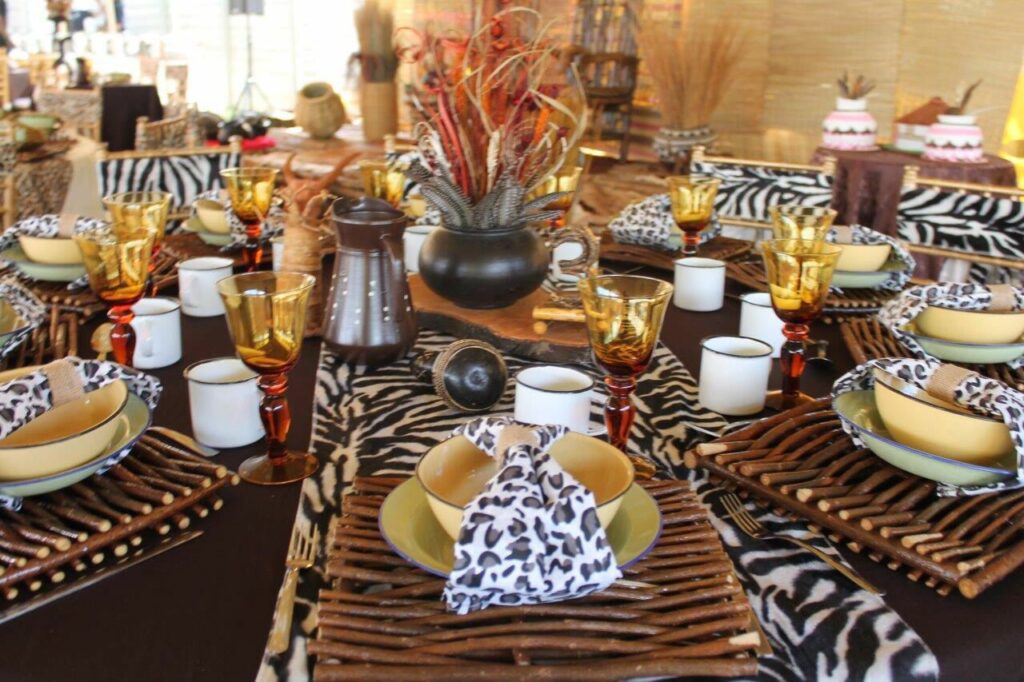
In the local wedding, unique Swazi traditional décor ideas and pieces like handmade crafts and Swazi candles are more than just adornment—they’re expressions of cultural artistry and tradition.
Handmade Crafts
The wedding venue often features exquisite handmade crafts that showcase the skills of Swazi artisans. Handwoven baskets, adorned with colorful beads and intricate patterns, serve as both decorative elements and functional items. These baskets might be used as centerpieces or to hold traditional offerings, reflecting the cultural significance of craftsmanship in Swazi life.
Beaded jewelry is another highlight, with intricate designs symbolizing various aspects of Swazi heritage. The bride and groom often wear handmade necklaces, bracelets, and earrings, meticulously crafted to represent unity, prosperity, and ancestral blessings.
Swazi Candles
Swazi candles add a warm and inviting glow to the wedding décor. Crafted with artistic detail, these candles often feature decorative elements like beaded designs or wax carvings that echo traditional patterns. The soft light they cast enhances the ambiance, creating a cozy and festive atmosphere.
Swazi Traditional Attire
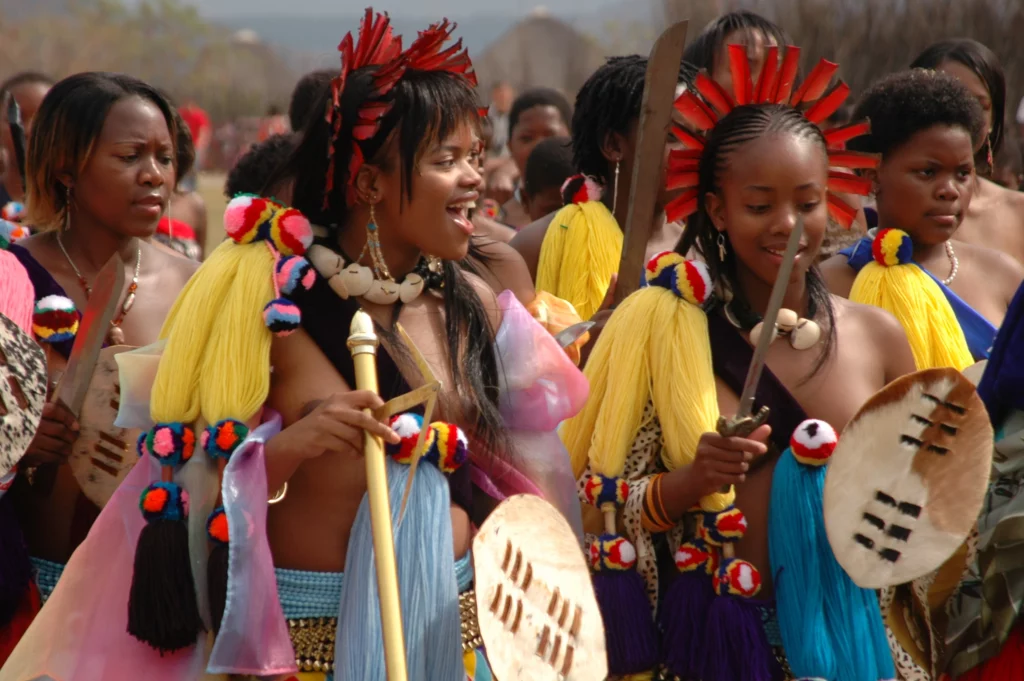
Best Swazi traditional attire offers a captivating glimpse into the vibrant world of Swazi fashion, where each garment tells a story of cultural heritage and personal expression. From the regal LIHIYA and EMAHIYA regalia to contemporary African fashion with a twist, the attire at Swazi weddings is both stunning and symbolic.
Traditional Dresses
The LIHIYA, a traditional Swazi garment worn by women, is a prime example of this rich heritage. This intricate attire consists of a long, flowing skirt and a matching top, often made from brightly colored fabrics adorned with elaborate beadwork and embroidery. The designs on the LIHIYA are not just decorative; they are infused with cultural symbolism, representing various aspects of Swazi life and traditions.
The EMAHIYA, another traditional garment, is worn by men and is equally striking. This attire features a wrapped cloth, typically in bold patterns and colors, secured around the waist. The EMAHIYA is complemented by a beaded belt and accessories that enhance its elegance. The bold geometric patterns and vibrant colors of the EMAHIYA are a testament to Swazi artistry and craftsmanship.
Both LIHIYA and EMAHIYA garments are often adorned with traditional accessories such as beaded necklaces, earrings, and headbands. These accessories are meticulously crafted, often incorporating specific patterns that signify social status and familial ties. The modern Swazi traditional attire seamlessly blends these age-old elements with contemporary fashion trends, creating a harmonious balance between tradition and modernity.
Modern Twists
Contemporary African fashion often blends traditional elements with modern trends, resulting in innovative and stylish garments that still honor cultural roots. For example, modern Swazi brides might opt for a sleek, tailored gown with traditional beaded accents, merging the elegance of contemporary fashion with the richness of Swazi tradition.
In addition, the influence of neighboring cultures, such as the Tsonga, also plays a role in modern Swazi wedding attire. Tsonga traditional dresses, known for their vibrant colors and intricate beadwork, are increasingly incorporated into Swazi weddings. These dresses feature bold prints and elaborate designs that enhance the celebratory atmosphere. A Tsonga-inspired dress might include a fitted bodice with a flared skirt, adorned with colorful beadwork and embroidery that reflects both cultural heritage and modern sensibilities.
Swazi Wedding Ceremonies
Swazi wedding ceremonies are a vibrant blend of tradition, culture, and community celebration. Each ceremony is rich with rituals and practices that have been passed down through generations, making the event a deeply meaningful and joyous occasion.
Festivals and Ceremonies

There are two popular traditional festivals locally: the Incwala festival and the Umembeso ceremony.
Incwala Festival
One of the most significant ceremonies in Swazi culture is the Incwala Festival, which, although not exclusive to weddings, plays a crucial role in the cultural calendar. The Incwala, or “First Fruits” ceremony, is a celebration of the king and the Swazi nation. This festival, which typically takes place in December or January, involves several days of rituals, dances, and the tasting of the new harvest. For a wedding, participating in or aligning with the Incwala signifies the couple’s connection to their cultural heritage and the blessing of the king and ancestors.
The festival begins with the “Little Incwala,” where the young men of the nation travel to gather sacred water and plants. This is followed by the main event, where the king leads rituals that include the consumption of the first fruits of the harvest, symbolizing renewal and prosperity. Weddings that coincide with this festival are imbued with additional layers of cultural and spiritual significance, linking the personal union of marriage to the broader Swazi identity and communal blessings.
Umembeso Ceremony
The Umembeso Ceremony is an integral part of the traditional Swazi wedding process. This ceremony involves the groom and his family presenting gifts to the bride’s family, symbolizing respect, gratitude, and the joining of the two families. The gifts typically include blankets, clothes, and livestock, which are essential in Swazi culture.
During Umembeso, the groom’s family arrives at the bride’s home in a celebratory procession, often accompanied by singing and dancing. The gifts are then presented in a formal and joyous ceremony, which is marked by speeches, blessings, and communal feasting. This exchange not only cements the relationship between the two families but also highlights the values of generosity and unity that are central to Swazi weddings.
Music and Dance
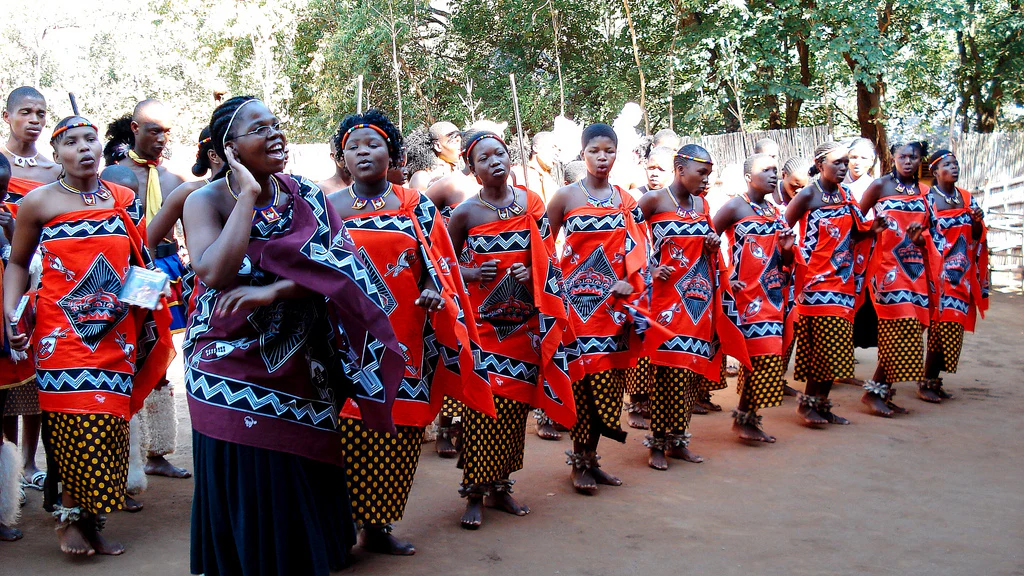
These music and dance performances entertain and serve as a living expression of Swazi culture, connecting the couple and their guests to their heritage. Each step, beat, and note reinforces the communal bonds and shared traditions that make Swazi weddings a truly unique and joyous experience.
Traditional Music
Traditional music is the heartbeat of Swazi wedding ceremonies, infusing the celebrations with rhythm and emotion. Indigenous instruments such as the “Makweyane” (a traditional bow instrument) and drums provide the soundtrack for the event. Songs often include praises for the couple, blessings from the ancestors, and celebratory chants that encourage dancing and participation from all attendees.
The melodies and rhythms are deeply connected to Swazi cultural narratives, with each song telling a story or conveying a message. The communal singing fosters a sense of unity and shared joy, making the music an indispensable part of the wedding festivities.
Dance Performances
Dance is another vibrant component of Swazi wedding celebrations, with performances that are both energetic and symbolic. The “Sibhaca” dance, characterized by powerful foot stomping and intricate leg movements, is a popular traditional dance performed at weddings. Dancers wear traditional attire, including beaded skirts and anklets, adding a visual spectacle to the rhythmic beats of the drums.
Another notable dance is the “Umhlanga” or Reed Dance, traditionally performed by young maidens. While the full Umhlanga ceremony is a larger cultural event, elements of this dance are often incorporated into wedding celebrations to honor the bride and highlight the beauty and grace of Swazi women.
What Wedding Party Wholesalers South Africa Could I Choose?

When planning a Swazi wedding, choosing the right South Africa party supplies provider can make all the difference. Here are some top wholesalers to consider for your special day:
- Primo Wedding: If you want to buy party accessories online in South Africa, Primo can offer every Swazi traditional décor for your weddings, from flowers, banners, tables, dishware, and all needed in the event. Custom service supported!
- South African Wedding Decor & Hire: Specializing in both indoor and outdoor wedding décor, they offer everything from elegant table settings to vibrant floral arrangements that capture the essence of Swazi traditions.
- African Queen Bridal Boutique: Offering a blend of traditional and modern Swazi attire, this boutique is perfect for finding unique wedding dresses and accessories that reflect cultural heritage with a contemporary twist.
- Kwazulu Décor & Hire: This wholesaler provides a wide range of décor options, including handmade crafts, beaded centerpieces, and Swazi candles, ensuring your venue looks both authentic and stunning.
- VIVA AFRICA Traditional Wear: Focused on traditional African fashion, they offer a variety of Tsonga and other traditional dresses that can add a vibrant and stylish touch to your wedding attire.
Conclusion
Swazi traditional décor offers a captivating glimpse into the culture’s rich heritage and artistic traditions. From the vibrant colors and intricate patterns to the unique handmade crafts and ceremonial attire, every element of Swazi wedding décor tells a story of cultural significance and artistic excellence. As Swazi weddings continue to evolve, the blend of tradition and modernity ensures that these celebrations remain timeless and relevant.


